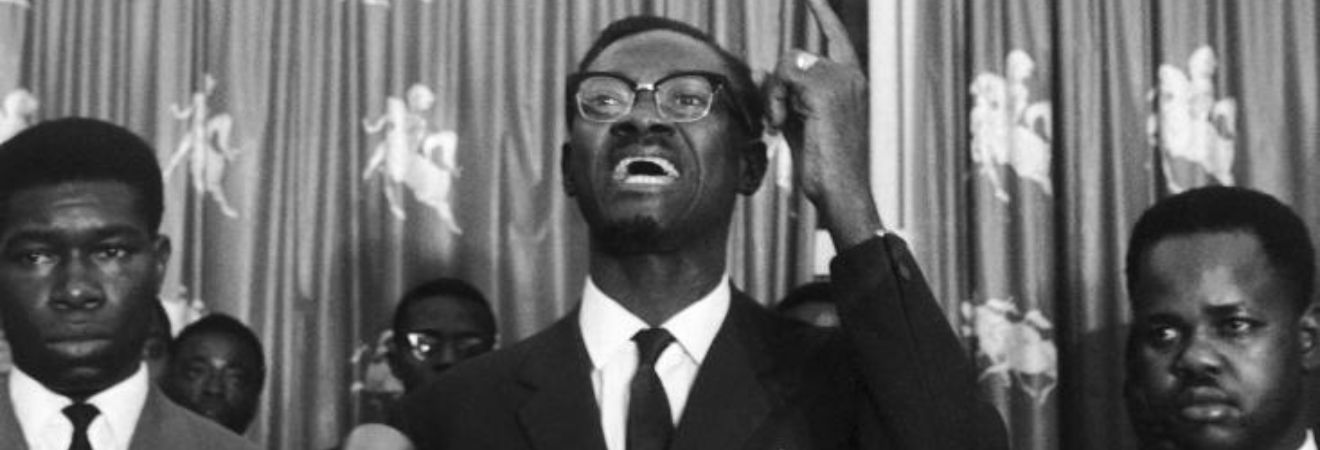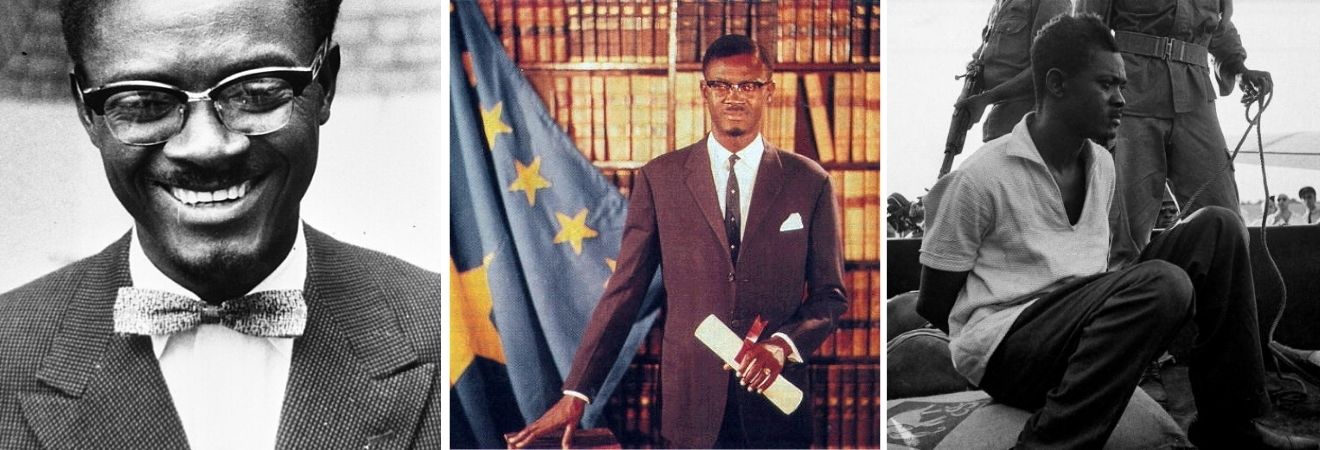PATRICE LUMUMBA- A FREEDOM FIGHTER REMEMBERED
By MKAKATI updated on June 27, 2024
Patrice Emery Lumumba, who served as Prime Minister of then known as The Republic of Congo, now the DRC, for a short time from June to September 1960. He was executed on 17th January 1961, because of his ideological beliefs and his daring stance towards the then Colonial Rulers and the Western World. Lumumba was a pan Africanist and a staunch Nationalist, who believed in the ideals of humanism, social equality (egalitarianism), social justice, liberty and equal fundamental rights for all, which he believed, was the duty of the state to provide for its citizens. He was fearless in articulating and contradicting the traditional Belgian views of colonisation, and he openly highlighted the suffering of the Congolese indigenous population under Colonial rule.
His impromptu speech on 30th June 1960, in front of King Baudouin of Belgium and the foreign press attending the Independence Day celebration defines the strength of character and belief of Patrice Lumumba.

“For this independence of the Congo, although being proclaimed today by agreement with Belgium, an amicable country, with which we are on equal terms, no Congolese worthy of the name will ever be able to forget that it was by fighting that it has been won, a day-to-day fight, an ardent and idealistic fight, a fight in which we were spared neither privation nor suffering, and for which we gave our strength and our blood. We are proud of this struggle, of tears, of fire, and of blood, to the depths of our being, for it was a noble and just struggle, and indispensable to put an end to the humiliating slavery which was imposed upon us by force.”
Lumumba’s main goals as the Prime Minister of an independent Country was to improve the quality of life of the Congolese people, which had suffered harsh treatment under the Colonial Government and to unify a country which was divided by tribalism and regionalism. Maybe the DRC would be a different country had Patrice Lumumba survived to bring his vision to fruition.
On January 17, 2024, the Democratic Republic of Congo will commemorate the 62nd Death anniversary of its first Prime Minister and freedom fighter, Patrice E. Lumumba. Considered a hero and symbol of the struggle for freedom, and widely appreciated for his role as a Congolese political and independence leader, Lumumba made a significant and indelible impact on the history of DRC.
His infamous assassination made him a martyr as well as a reference point in the struggle for justice in Africa. His murder sparked global outrage and strengthened the resolve of liberation movements across the continent.
More than six decades later, Patrice Emery Lumumba continues to be widely revered in the DRC as a national hero and representative of the struggle for independence and human dignity. However, despite a legacy perpetuated through monuments, streets and institutions in his honor, many agree that this vast Central African country reflects very little of the former head of government’s progressive vision.
« To know where you’re going, you need to know where you’ve been. »
This adage underlines the importance of learning and reflecting on past experiences in order to secure one’s future. History is a great teacher and it is important of us to learn by remembering and knowing our failures, our successes, our lessons learned so that we are better prepared to make more informed decisions and avoid repeating the same mistakes. We can then build a more promising and progressive future, not just for a few but the country as a whole.
It also means that knowledge of history and past events is essential to understanding current problems and to considering innovative solutions. This principle can be applied at both individual and collective level, whether in our personal lives, our professional careers or even within societies and nations. For this to happen it is very important for the people of the country to be educated in the true facts for that brings awareness on what changes need to be done to positively impact the lives of the people of a nation.

History and legacy
Realizing history is an ongoing process that requires a commitment to learning, questioning, and re-evaluating our preconceptions. Legacy is the inheritance a person leaves behind when they die.
To combine history and heritage, it’s important to develop a broader perspective. What’s more, when we understand the causes and consequences of past events, we can make more informed decisions and contribute to a better future.
In the Democratic Republic of Congo, we know the story of Patrice Emery Lumumba and have inherited the consequences of his assassination rather than the causes that led to his atrocious death. His ideals got the better of him and did not have time to be integrated.
From knowledge to consciousness
Knowledge and consciousness are two interconnected but distinct concepts. On the one hand, we have knowledge, which is the act of understanding the world around us, acquiring skills through experience, education, research and so on. On the other hand, consciousness recognizes the importance and impact of something. Can we say that the Congolese have inherited a history without a deep knowledge of it?
« Patrice E. Lumumba fought colonialism without knowing that neo-colonialism was on the horizon. »
Above and beyond the heinous crime of which Patrice Lumumba was the victim, it is the evil hands behind this assassination that should raise our concern. A murder, ordered from Brussels, Washington, and Leopoldville, that remains unpunished to this day. This important part of history remains hidden and is hardly ever brought to the fore.
At the time of independence, pan-Africanist ideas were very popular, which did not please our “former” executioners. They were determined to eliminate anyone who didn’t want to play their part.
Patrice Lumumba, Prime Minister in the Kasa-Vubu government, disavowed his president, judging him to be too close to the whites and Western thinking. His progressive visions clashed with ordinary racism. Indeed, the man nicknamed “the chaos of the Belgian Congo” by the late King Baudouin sealed his fate when he asked the Soviets for help in transporting his troops to the Katangese front. On August 18, President Eisenhower chaired a meeting of the National Security Council in Washington, during which CIA Director Allen Dulles called for Lumumba’s physical elimination.
To know the story of Patrice Emery Lumumba is to understand that he was the hero of a battle, and that in the end, it was war that got the better of him. A war that did not speak its name, but which today is identified as “neo-colonialism”. Saïd Bouamama, sociologist and community activist with the United Front for Immigration and Neighborhoods, declared: “Neo-colonialism is the establishment of mechanisms of dependence without military occupation”.
Learning to understand
It is essential to give meaning and significance to the commemoration of Patrice E. Lumumba, providing historical context, telling relevant stories, encouraging reflection and learning, and highlighting the lessons and values that can be drawn from his assassination.
« Everywhere in the world, when you proclaim someone a “hero”, the least you can do is to disseminate their political thought, in schools, on the radio, on television… », said François Lumumba, son of Patrice E. Lumumba.
The future of the Democratic Republic of Congo lies in popularizing and appropriating the political thought of our national hero. These two aspects will enable the Congolese to understand and connect with their culture and roots, and strengthen their sense of belonging, while contributing to a better future.
Today, the emancipation of some African countries is the legacy of Patrice E. Lumumba’s vision. Lumumba’s political program has inspired many African leaders to strive for greater economic sovereignty. His fight for justice, abolishing tribalism, Nationalism and African unity remains relevant even today, and continues to guide those seeking to prosper and building a bright future for the countries on the African Continent.



